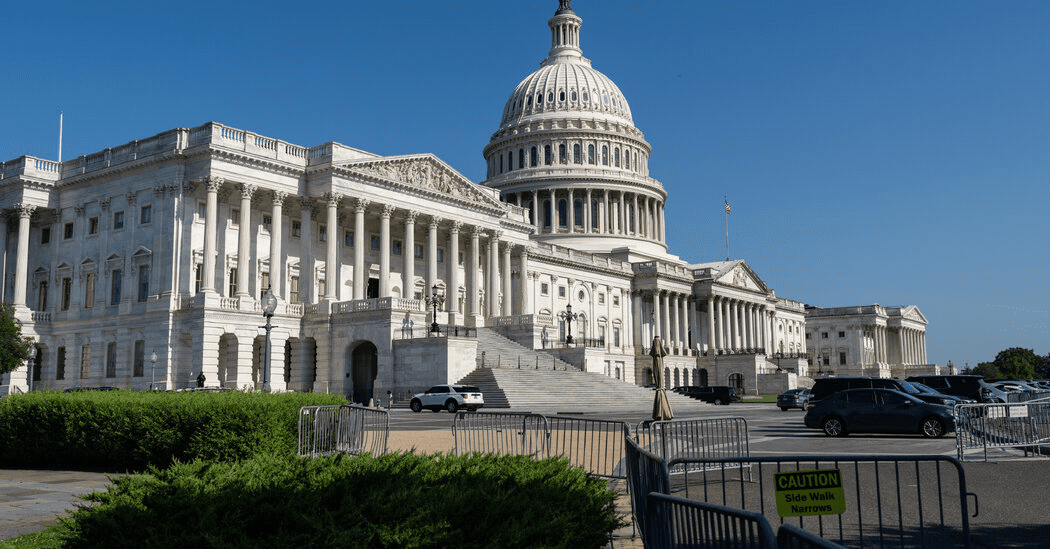Senate Republicans are charging forward with a plan to disregard the chamber’s longtime rules affecting what bills can be passed along party lines.
WASHINGTON, June 30 (Reuters) – U.S. Senate Republicans will try to pass President
Donald Trump’s sweeping tax-cut and spending billon Monday, despite divisions within the party about its expected $3.3 trillion hit to the nation’s debt pile.
They face a marathon session in which the minority Democrats are allowed to offer an unlimited number of amendments, part of the arcane process Republicans are using to bypass Senate rules that normally require 60 of the chamber’s 100 members to agree on legislation.
Asked whether he was confident the measure would pass,
Republican Senate Majority Leader John Thune of South Dakota told reporters, “Never until we vote.”
The nonpartisan Congressional Budget Office released its assessment on Sunday of
the bill’s hit to the $36.2 trillion U.S. debt pile, figuring it would add about $800 billion more than the version passed last month in the House of Representatives.
Many Republicans dispute that claim, contending that extending existing policy will not add to the debt. Nonetheless,
international bond investors see incentives to diversify out of the U.S. Treasury market.
Democrats, meanwhile, hope the latest, eye-widening figure could stoke enough anxiety among fiscally minded conservatives to get them to buck their party, which controls both chambers of Congress.
“This bill, as we have said for months, steals people’s
healthcare, jacks up their electricity bill to pay for tax breaks for billionaires,” Democratic Senate Minority Leader Chuck Schumer said in a speech to the Senate.
Thune countered that the tax cuts will help families and small businesses, as he defended spending reductions to social safety net programs.
He said Medicaid was growing at an unsustainable rate and there were some improvements and reforms to make it more efficient.
The Senate narrowly advanced the tax-cut,
immigration, border and
military spending bill in a procedural vote late on Saturday, voting 51-49 to open debate on the 940-page megabill.
Trump wants the bill passed before the July 4 Independence Day holiday.
DEBT CEILING DEADLINE
The Republican measure contains a $5 trillion debt ceiling increase – $1 trillion more than the House’s bill – but failure to pass some version would present lawmakers with a serious deadline later this summer, when the Treasury Department could come close to exhausting its borrowing authority and thus risk a devastating default.
The debt limit increase has caused Senator Rand Paul of Kentucky to come out in opposition to the bill, joining fellow Republican Thom Tillis of North Carolina, who decried its cuts to Medicaid and clean energy initiatives.
According to the CBO, the Senate bill would result in about 11.8 million additional uninsured people, surpassing estimates for the House’s version.
If the Senate succeeds in passing the bill, it will then go to the House, where members are also divided, with some angry about its cost and others worried about cuts to the Medicaid program. Republicans can afford to lose no more than three votes in either chamber to pass a bill the Democrats are united in opposition to.
The legislation was the sole focus of a marathon weekend congressional session marked by political drama, division and lengthy delays as Democrats seek to slow the legislation’s path to passage.
The megabill would extend the 2017 tax cuts that were
Trump’s main legislative achievement during his first term as president, cut other taxes and boost spending on the military and border security.
Senate Republicans, who reject the CBO’s estimates on the cost of the legislation, are set on using an alternative calculation method that does not factor in costs from extending the 2017 tax cuts. Outside tax experts, like Andrew Lautz from the nonpartisan think tank Bipartisan Policy Center, call it a “magic trick.”
Using this calculation method, the Senate Republicans’ budget bill appears to cost substantially less and seems to save $500 billion, according to the BPC analysis.

